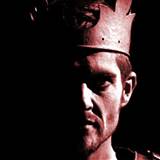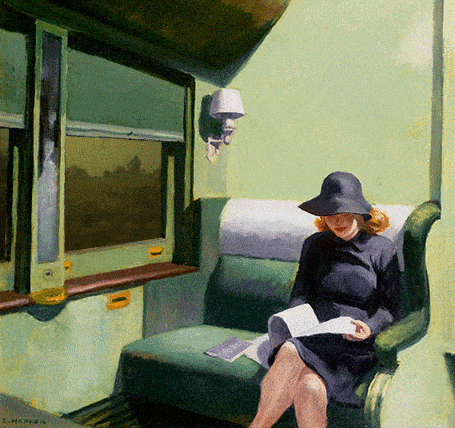A Brave New World or Evil Will Make One Lose Their Head
July 26, 2014 Leave a comment
“Fair is foul and foul is fair
Hover through the fog and filthy air.”
If like me you are a follower of The Way then I don’t have to tell you that we live in an age of ever encroaching evil. The effects: man’s inhumanity to man is shown daily on the nightly news along with the moral relativism which justifies it all. We now “Hover through the fog and filthy air.”
In the U.S. we now are governed and adjudicated by those who want to “fundamentally transform” the world around them. For these morally adrift flotsam and jetsam of embattled truth, the ends justify the means. For them, right or wrong considerations are the millstones which keep them from reaching the distant shores of their island utopias called ‘Freedom’ and ‘Rights’.
Our world in almost every aspect has been turned upside down by moral relativism. One prime example: criminals (and illegal aliens this very day, too) are now considered the victims by many judges.
Unconstrained judges will often base their final decisions on the fatuous reasoning of rationalism’s data merchants, the social scientists ~ ‘scientists’ who paint family background and poverty scenarios with a blind eye to the true victim. The resultant formulation: a sliding scale of ad hoc “social justice” created with a calculus of personal ambition by a judge who is being watched by the attention-seeking liberal media, the ‘acclaimed’ ‘social’ ‘scientists’ and his/her cocktail party sycophants.
Personal responsibility for one’s behavior has been thrown out the window. Such a ‘weight’ would incur too much shame and guilt on the part of the perpetrators of evil. Psychologists, social workers and their ilk want to avoid shame and guilt. And if Rousseau were here today he would say that institutions and authorities are the problem, that man is inherently good. You know better.
Willfully the social do-gooders replace personal responsibility and consequences with an “I’m OK Your Ok” “fog and filthy air” therapy. Mind altering anxiety killing pills are prescribed to deal with guilt. Heaven forbid that a person encounter and understand the consequences of their actions.
Shakespeare’s The Tragedy of Macbeth is an excellent example of the very human tragedy that is the result of good people crossing a line to make evil choices. And, after having read several of Shakespeare’s plays, it would seem that Shakespeare knew more about humanity than any ‘social scientist’ who has ever published. The Bible being unquestionably the authority, The Book, about mankind.
Another writer who understood man’s capacity for evil was Alexander Solzhenitsyn. A Russian novelist, historian, dissident and documentarian Solzhenitsyn had first-hand knowledge of evil as he and others experienced it under the murderous tyrant Stalin. From under the clouds of evil, as well as introspectively, Solzhenitsyn observed:
“The battle line of good and evil runs through the heart of every man.”
Moral relativism, a synthesis of good and evil, makes the line dividing good and evil murky. And, in these days of Progressivism’s Pontius Pilate-like questioning, “What is truth?” it has become increasingly difficult to see the delineation between good and evil. The “fog and filthy air” of moral relativism must be seen for what it is ~ the admixture of good and evil.
The opening quote, spoken in unison by three witches, is from the opening of Shakespeare’s play The Tragedy of Macbeth, Act One, Scene 1.
The foreboding first scene takes place on the heather moors of Scotland under a stage setting of “Thunder and lightening.” The imagery throughout the play is of night, of darkness, of man’s dark nature, of blood, of distortion. In other words, the play brings to ‘light’ the evil overcast in men’s souls.
Macbeth, a Scottish General and the thane (a noble) of the village of Glamis in Scotland, is the main character.
In the play’s opening scene Macbeth is the subject of a plot by three witches. He is to be encountered by them in an open field after he has completed a battle. Their reason: the witches want to give Macbeth their ‘prophecies’ right after his victory while the won battle is fresh in his mind and his pride is stoked.
At the end of the brief opening scene that the witch’s animal ‘spirit lords’ call to them and they fly away. Act One, Scene 1 ends portentously. Evil is in the air. The witches are the harbingers.
The play is a tragedy about its eponymous main character facing the battle line within his heart. He begins as a noble and valiant warrior for Scotland. He starts out as good. He knows right from wrong; He fights for the good of all Scotland with all his might. But things begin to change after he returns victorious from a recent battle for Scotland. Macbeth walks into the aforementioned open field with his battlefield companion Banquo. The open field context could appear to them as a broad daylight moment and therefore any ‘truth’ would be clear to see. Yet it is not.
For the three witches this is perfect timing to speak their prophecy. Its appeal goes directly Macbeth’s pride and to his grandiosity after having gained victory on another field.
By telling Macbeth and his companion that they will rule Scotland each in their own way their imaginations begin to run wild. Reason also begins to plot as to how to ‘cross the line’ into royalty. The two men, warriors and servants of the King of Scotland, having just come from battle for their current regent Duncan now hear that they, too, will be regents. They begin to imagine that they are ‘meant’ to have what others have. So, they are told.
After the witches relay their prophecies, Banquo counsels Macbeth (from the No fear translation, Act One, scene 3):
If you trust what they say, you might be on your way to becoming king, as well as thane of Cawdor. But this whole thing is strange. The agents of evil often tell us part of the truth in order to lead us to our destruction. They earn our trust by telling us the truth about little things, but then they betray us when it will damage us the most
What a perfect description of the enticement of moral relativism that leads us to ruin!
To speed up the process of becoming a regent (no time line was given by the witches) Macbeth crosses a line and chooses a path of evil. The evil compounds quickly into greater evil when Macbeth sends a letter to Lady Macbeth.
Lady Macbeth quickly embraces evil after reading the letter from her husband reciting the witch’s prophecies. (She, obviously, like Macbeth, doesn’t consider the source. Moral relativism has a penchant for this.). Lady Macbeth is stricken by the idea of being royalty and invites evil in, desiring to enable her husband to become king of Scotland. In doing so, Lady Macbeth becomes the very image of subjecting one’s self to evil in hopes of achieving ‘gain.’ She embraced the lie that evil brings right to your door step.
Shortly afterward, when she hears that King Duncan will be coming to the Macbeth house, she plots his murder. Her words, again from No Fear Shakespeare, Act One scene 5:
“So the messenger is short of breath, like a hoarse raven, as he announces Duncan’s entrance into my fortress, where he will die. Come, you spirits that assist murderous thoughts, make less like a woman and more like a man, and fill me from head to toe with deadly cruelty! Thicken my blood and clog my veins so I won’t feel remorse, so that no human compassion can stop my evil plan or prevent me from accomplishing it! Come to my female breasts and turn my mother’s milk into poisonous acid, you murdering demons, wherever you hide, invisible and waiting to do evil! Come, thick night and cover the world in the darkest smoke of hell, so that my sharp knife can’t see the wound it cuts open, and so heaven can’t peep through the darkness and cry, No! Stop!”
Lady Macbeth, consumed by evil, question’s Macbeth’s manhood when he waffles considering what must take place for his ‘prophetic’ rule to occur.
The play stages many of the elements and images of evil. Macbeth’s machismo, his masculinity is questioned by an evil embracing wife. There is guilt and paranoia, blood shed, ghosts, complicity in doing evil, delusional thinking leading to madness, remorse leading to suicide, darkness – all the time. Let it be known: evil hates the light of day.
At this juncture in the post I do not want to reveal and dissect the whole storyline or make this post longer than the play itself. I suggest reading the whole play in one sitting. It is a short, fast paced tragedy.
And, I suggest, if you haven’t read Shakespeare’s plays then do what I have done: read the plays from the very accessible, inexpensive series of books called No Fear Shakespeare. As the cover relates: “The Play Plus A Translation Anyone Can Understand”.
Can man remake himself with pills, through better institutions, by labeling himself a “deserving” person or by removing a psychopathic bent from the DSM?
Can man rule in life by crossing the line in his heart from good over to evil? Progressivism, materialism and evil itself would suggest it is possible. Yet, in doing so one is radically and “Fundamentally Transformed” as are the lives of those around them.
Was not Christ tempted by Satan in the same way as we are?
Satan took Jesus to a high pinnacle and showed him the world. Satan said to Christ, “You can have all of this if you give your allegiance to me.” In other words, “Cross the Line. Believe the lie.”
There is no namby-pamby Jesus or cheap Unitarian grace where good is mixed with evil.
When describing the Kingdom of Heaven to his disciples Jesus spoke in parables or similes of real life experiences they would have had. The passage below is from just such a discourse. It is from the Gospel according to Matthew 13: 44-53:
“…Again, the kingdom of heaven is like a net that was thrown into the sea, and collected every type of fish. When it was full, the fishermen brought it to shore. They sat down and selected the good ones, which they put into a bucket; but they threw out the bad ones. That’s what it will be like at the close of an age. The angels will go off and separate the wicked from the righteous, and they will throw them into the fiery furnace, where there will be weeping and gnashing of teeth.
“Have you understood this?” asked Jesus
“Yes, “they answered….”
You have a choice. Don’t let anyone conjure up excuses for you. You have a choice.
***
A short description of Shakespeare’s tragedy Macbeth from Wikipedia:
Macbeth is a play written by William Shakespeare. It is considered one of his darkest and most powerful tragedies. Set in Scotland, the play dramatizes the corroding psychological and political effects produced when its protagonist, the Scottish lord Macbeth, chooses evil as the way to fulfill his ambition for power.
****
Macbeth picture courtesy of :

